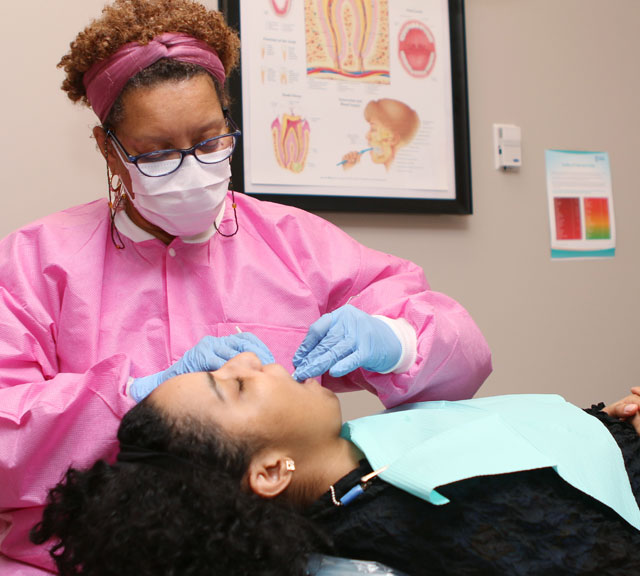Diabetes: The Oral Health Connection

Answer a few questions and we'll provide you with a list of primary care providers that best fit your needs.
Regardless of your age, you can add gum disease and other oral health problems to the list of complications associated with diabetes. But with good dental hygiene, your chances of avoiding these problems improve significantly.
What’s the Risk?
Diabetes disrupts the way blood flows through your body. This makes you more susceptible to infections from bacteria, including bacteria in your mouth. Diabetes also can weaken your bones and gums. As a result, you can be at increased risk of:
- Gingivitis (early stage gum disease). Red, swollen, tender gums that bleed when you clean and floss
- Mild periodontitis. Gums that begin pulling away from teeth, which can result in loss of bone
- Moderate to advanced periodontitis. Deepening pockets in the gums around the teeth; bone loss; loosened teeth that may need to be removed
- Thrush. Fungal infection in your mouth, which can result from high glucose levels in your saliva
- Dry mouth. Your mouth doesn’t have enough saliva to prevent infection and tooth decay
Diabetes disrupts the way blood flows through your body. This makes you more susceptible to infections from bacteria, including bacteria in your mouth.
How Can You Decrease the Risk?
Follow stringent dental hygiene practices:

- Thoroughly brush your teeth and tongue twice a day for three minutes with fluoride toothpaste.
- Floss at least once a day, scraping around each tooth from below the gum to the top of the tooth. Rinse afterwards.
- Remove and clean your dentures every day.
- Get a checkup every six months. Be sure your dentist and hygienist know you have diabetes and are aware of any changes in your health or medications.
Control your blood glucose:
- High glucose levels in your saliva encourage the growth of bacteria that can cause gum disease.
- Poor control decreases your body’s ability to fight infection, including infections in your mouth.
- Good control helps prevent or relieve dry mouth and infections including thrush.
- Not only can poor control contribute to gum disease, but serious gum disease can make controlling your blood glucose more difficult.
Don’t smoke or use tobacco. Although smoking is harmful to oral health for everyone, people who have diabetes and smoke have a much greater risk of gum disease than those who don’t have diabetes and smoke.
Answer a few questions and we'll provide you with a list of primary care providers that best fit your needs.
Source: National Institutes of Health; American Dental Association; American Diabetes Association




